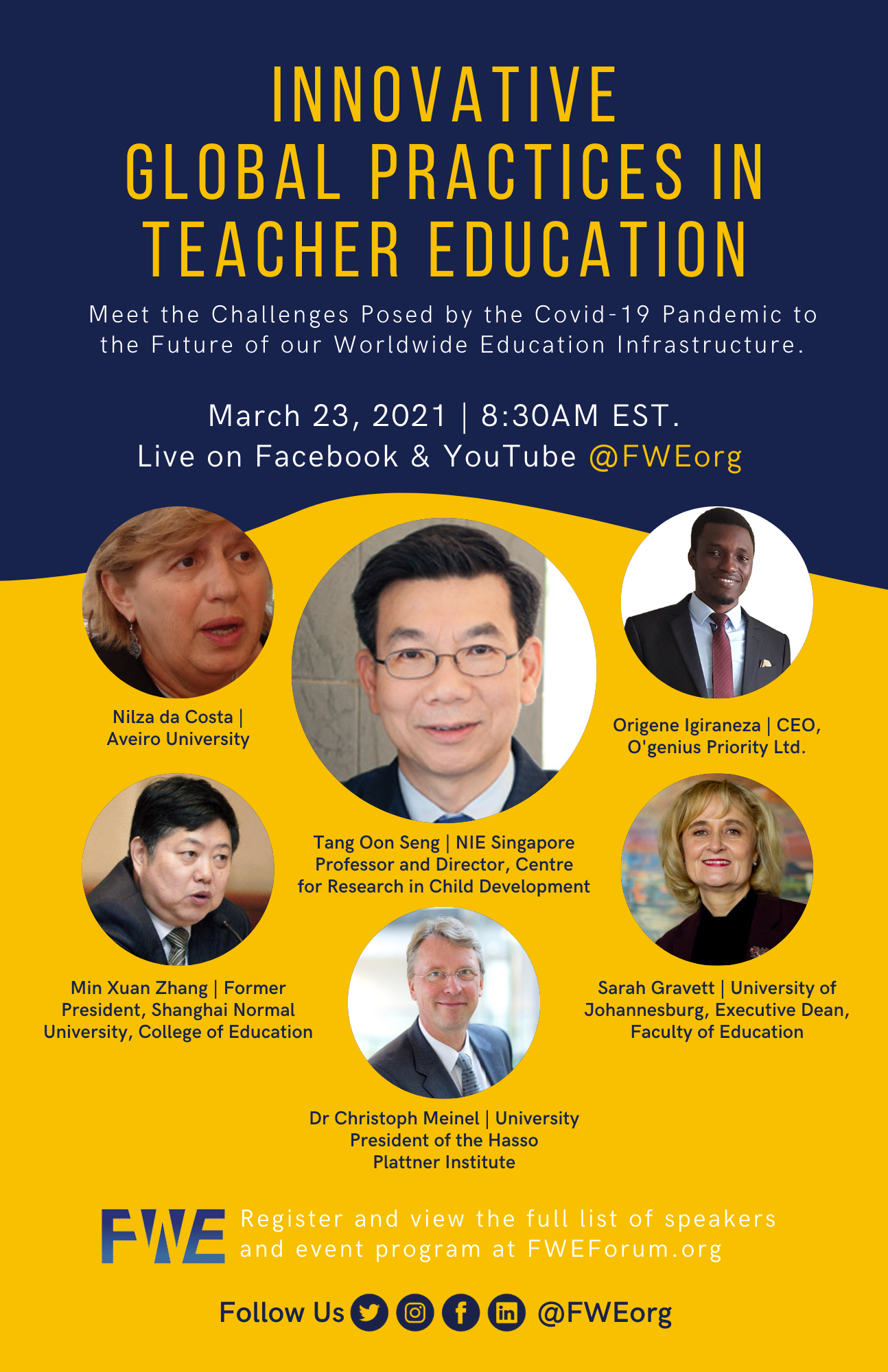Date: March 23rd, 2021
Time: 8:30 am EST (UTC-4)
Innovative Global Practices in Teacher Education.
Teaching is challenging in the best of times. Over the past year, teachers worldwide have been further challenged by the health, social, and economic fallout associated with COVID-19. As we emerge from the pandemic, it is more important than ever to marshal all the resources at our disposal to ensure that we maintain a strong teaching force through pre-service training and in-service professional development and support that enables us to “build back better.”
[fvplayer id=”8″]



